Το Σώμα στη Σύγχρονη Αμερικανική Λογοτεχνία
Ενότητα 11
Preparatory questions:
Consider terms like “mutant,” “genetically modified organism (GMO),” “nanotechnology,” “prosthetics,” “bioengineering,” “clone,” “robotics,” “cybernetics,” “cyborg.” Do any of those apply to your immediate reality? If not now, do you think you’ll be likely to deal with those elements in the future?
Do you think it is inevitable that people will react towards other people with bias on the basis of their appearance? What factors exacerbate or mitigate such an attitude?
What do you think future humankind will look like? Why?
Supplementary readings:
Edward Said, “From Orientalism”
Donna Haraway, “A Manifesto for Cyborgs”
